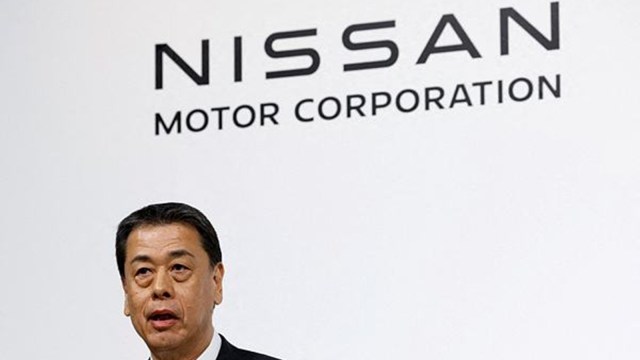Japanese automaker Nissan’s chief executive steps down after dismal results
Ivan Espinosa, who is now the company’s chief planning officer, will take Uchida’s place.
 During Uchida’s more than five years at Nissan’s helm, sales faltered, including in key markets like the US and China. (Reuters file photo)
During Uchida’s more than five years at Nissan’s helm, sales faltered, including in key markets like the US and China. (Reuters file photo)Japanese automaker Nissan’s chief executive, Makoto Uchida, is stepping down after the company reported dismal financial results. Nissan Motor Corp said in a statement Tuesday that Ivan Espinosa, who is now the company’s chief planning officer, will take Uchida’s place, effective April 1.
Espinosa, who joined Nissan in 2003, has spent much of his Nissan career in Mexico and Southeast Asia, overseeing product planning including the drive toward electric vehicles. “I sincerely believe that Nissan has so much more potential than what we’re seeing today,” Espinosa told reporters, while stressing that he needs time to come up with details for a turnaround.
He stressed his love for Nissan, noting he has developed a deep understanding of what makes the company unique and valuable. Nissan said the company leadership needed to be “renewed” to achieve long-term growth. Uchida, who remains as a director, expressed confidence in Espinosa as “a real car guy,” and stressed he was handing over the baton of leadership to better unify company ranks. “I am confident that Nissan will definitely make a comeback,” he said, appearing at the hastily called news conference with Espinosa.
Speculation about Uchida’s future was rife after he called off talks last month with Japanese rival Honda Motor Co., announced late last year, to set up a joint holding company to integrate its businesses. At the time, he told reporters the focus of the talks had changed to making Nissan into a Honda subsidiary, which he denounced as unacceptable.
He also said their strategic partnership to realize synergies on specific projects like electric vehicles and other research will continue. Nissan is projecting a loss of 80 billion yen ($540 million) for the full fiscal year through the end of this month.
When asked about talks with Honda and other possible partnerships, Espinosa declined comment, saying he needed more time. During Uchida’s more than five years at Nissan’s helm, sales faltered, including in key markets like the US and China.
Uchida also earlier announced the company was slashing 9,000 jobs. It’s a sad turn for the maker of the Z sportscar, loved by auto buffs around the world, and the Leaf electric car, a pioneer in that sector that launched in 2010.
Uchida joined Nissan in 2003, job-hopping from major Japanese trading company Nissho Iwai, and worked with Nissan’s alliance partner Renault SA of France before overseeing Nissan’s China operations.
Nissan was rescued from near bankruptcy by Renault in 1999. In 2018, Carlos Ghosn, the former superstar executive sent in by Renault, was arrested by Japanese authorities on various financial misconduct charges, including under-reporting his compensation. He later fled Japan for Lebanon.
Nissan’s tarnished corporate image after the Ghosn fiasco was a major challenge, Nishida said. So were the COVID-19 pandemic and broader shifts in the auto industry. Apart from Uchida’s departure as chief executive, Nissan announced other sweeping managerial changes, including giving an expanded role to Guillaume Cartier, its chief performance officer, in global marketing and customer experience.
Eiichi Akashi, corporate vice president of the Vehicle Planning and Vehicle Component Engineering Division, was named chief technology officer, succeeding Kunio Nakaguro. Teiji Hirata, a corporate vice president, will become chief “monozukuri” officer and executive officer, responsible for manufacturing and supply chain management, replacing Hideyuki Sakamoto. Jeremy Papin, the chief financial officer, was also appointed to be an executive officer.
There was no change for Stephen Ma, who serves as chairperson of Nissan’s management committee in China.
Others said the Trump administration had already made their work harder, after the White House froze credit cards held by agency employees for a 30-day period under DOGE’S “cost efficiency initiative”.
“It has already become very difficult to continue our global greenhouse gas monitoring network,” an atmospheric scientist involved in NOAA’s measurements said, asking not to be named.
“It requires continuous shipping of sampling equipment black and forth all over the world. Suddenly, we cannot use our government-issued credit cards anymore … It looks like our monitoring program will soon be dead,” the scientist said.
A former NOAA official, who asked not to be named, said the lease on the office was due to end on August 31.
Photos



- 01
- 02
- 03
- 04
- 05




























